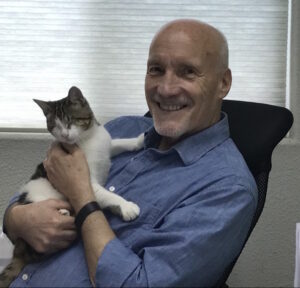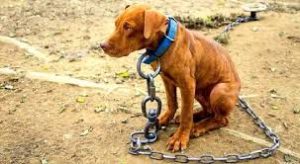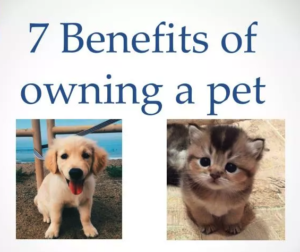There’s a reason why dogs are known as “man’s best friend” and cats as our “feline companions.” Beyond the joy and companionship they bring, owning a pet offers numerous health benefits that can enhance our overall well-being. From reducing stress and boosting mental health to promoting physical fitness and providing a sense of purpose, the advantages of pet ownership are far-reaching. Continue reading “The Pawsitive Health Benefits Associated with Pet Ownership”
The Unyielding Power of Compassion: A Beacon of Light in a Cruel Society
 In a world often marked by its cruelties and injustices, the concept of compassion shines like a beacon of hope. Today, I want to delve into the profound significance of compassion, especially in the midst of a society that can sometimes appear harsh and unfeeling. In our journey through the realms of animal welfare and beyond, it becomes increasingly evident that compassion is not just a virtue; it is a lifeline for us all. Continue reading “The Unyielding Power of Compassion: A Beacon of Light in a Cruel Society”
In a world often marked by its cruelties and injustices, the concept of compassion shines like a beacon of hope. Today, I want to delve into the profound significance of compassion, especially in the midst of a society that can sometimes appear harsh and unfeeling. In our journey through the realms of animal welfare and beyond, it becomes increasingly evident that compassion is not just a virtue; it is a lifeline for us all. Continue reading “The Unyielding Power of Compassion: A Beacon of Light in a Cruel Society”
Ed Boks Reflects on the Current State of Animal Welfare: A Journey Towards Compassion
Introduction

Hello, dear friends and fellow animal advocates. I’ve spent my life working towards the betterment of animal welfare. Today I want to share my thoughts on the current state of animal welfare, the progress we’ve made, and the challenges that still lie ahead.
A Lifetime of Dedication
Throughout my career, I’ve had the privilege of working with numerous organizations and communities, all with the shared goal of improving the lives of our furry, feathered, and scaly friends. From my early days in animal control to leading large municipal animal services agencies, my journey has been one of learning, adapting, and growing.
Progress in Animal Welfare
It’s heartening to see how far we’ve come in the realm of animal welfare. Communities worldwide have made significant strides in improving the lives of animals. Here are some highlights of our progress:
- Spay/Neuter Programs: We’ve witnessed the tremendous impact of spay/neuter programs in reducing the number of homeless animals and euthanasia rates.
- Adoption and Rescue: Animal shelters have become centers of compassion and hope, with dedicated staff and volunteers working tirelessly to find loving homes for animals in need.
- Education and Awareness: Through public outreach and education, we’ve raised awareness about responsible pet ownership, animal cruelty prevention, and the importance of adopting from shelters.
- Legislative Changes: Laws have evolved to protect animals, with stricter regulations against animal cruelty, puppy mills, and exotic pet ownership.
- Humane Alternatives: We’ve seen the rise of innovative approaches to animal welfare, such as trap-neuter-return (TNR) programs for feral cats and no-kill shelter initiatives.
Challenges on the Horizon
While we’ve made significant strides, there are still challenges ahead:
- Overpopulation: Despite our best efforts, overpopulation remains a concern in many areas. Stray and feral animal populations continue to strain resources.
- Animal Cruelty: Cases of animal cruelty persist, requiring continued vigilance and enforcement of animal protection laws.
- Wildlife Conservation: As human activity encroaches on natural habitats, wildlife conservation becomes increasingly vital. We must protect not only domestic animals but also our wild counterparts.
- Education: We must continue educating the public about the importance of adopting, spaying/neutering, and responsible pet ownership.
- Global Issues: Animal welfare is not confined to borders. We need to address international issues like the illegal wildlife trade and factory farming on a global scale.
A Message of Hope
Despite the challenges, my hope for the future of animal welfare burns brightly. Our collective efforts have shown that change is possible, and compassion is an unstoppable force. Together, we can continue to make a difference in the lives of animals.
As we move forward, let us remember that every act of kindness towards animals matters, whether it’s adopting a shelter pet, supporting local rescue organizations, or advocating for stronger animal protection laws. Together, we can create a world where animals are treated with the respect and care they deserve.
Conclusion
In reflecting on the current state of animal welfare, I’m reminded of the famous quote by Mahatma Gandhi: “The greatness of a nation and its moral progress can be judged by the way its animals are treated.” Our journey towards a more compassionate world for animals is a testament to our moral progress. Let’s continue this journey with unwavering dedication, for the sake of the animals who rely on us for their well-being and happiness.
If I can help your organization or community, let me know at: Contact Ed Boks
Think Globally, Give Locally – Especially True for Animal Welfare
 Imagine how you would feel if your boss told you he was so happy with your work that he was going to give a bonus to your coworker. I suspect you would be dumbfounded. Yet, in my line of work, it is not uncommon to hear, “I really love the work my local humane society or spca does – so I sent a donation to the Humane Society of the United States (HSUS) or to the ASPCA (American Society for the Prevention of Cruelty to Animals) to help support you.”
Imagine how you would feel if your boss told you he was so happy with your work that he was going to give a bonus to your coworker. I suspect you would be dumbfounded. Yet, in my line of work, it is not uncommon to hear, “I really love the work my local humane society or spca does – so I sent a donation to the Humane Society of the United States (HSUS) or to the ASPCA (American Society for the Prevention of Cruelty to Animals) to help support you.”
One of the greatest misunderstandings and biggest challenge local animal welfare organizations face is the belief most people have that HSUS and the ASPCA are affiliated with local animal welfare organizations.
Do you know how much funding HSUS and the ASPCA gave your local humane society or spca? If you said “nothing,” you’re likely correct – and this is true for virtually every local animal welfare organization in the United States.
Ironically, HSUS and the ASPCA raise enough money each year to fund an animal shelter in every state. However, HSUS has no animal shelter anywhere, and the ASPCA has just one shelter in New York City – that actually handles fewer animals each year than most small local humane societies or spca’s across the nation.
The mission of the national organizations is to raise awareness of national animal welfare issues; the mission of local humane societies and spca’s is to actually care for the homeless, abused and neglected pets in their local communities.
Many mistakenly believe their gifts to national groups will trickle down to help animals in their own community. I only wish that were true.
People come to this assumption through misleading marketing tactics. Let me give you an example. I once received an ASPCA direct mail solicitation that was also sent to millions of homes across the nation. The solicitation said, “Together we can stop cruelty to animals. … As you read this letter, somewhere – perhaps not far from you – someone is inflicting pain on an innocent and helpless animal. … You may not be able to rescue that particular animal. … Please send the largest gift you can manage to help the ASPCA save animals like it.”
Clearly, the ASPCA understands that sending “the largest gift you can manage” to their New York office is not the best way to help protect “an innocent and helpless animal,” a “particular animal,” an animal “not far” from where you live.
I have no objection to national animal welfare organizations asking for support for the important work they do. However, I do object to misrepresenting their programs by implying they are helping animals in every community in the nation. This is especially disturbing as you watch the daily barrage of heart-wrenching television ads national organizations use to seek donations.
I believe the maxim “think globally; act locally.” However, I object to national organizations abusing this tenet by suggesting you are acting locally when you contribute to them. Don’t be fooled. When you contribute to these organizations, your money is leaving your community never to return. If that is your intent, fine, but be sure you understand that.
Every local humane society/spca in every city, town and county, was founded to help homeless, abused and neglected animals in their own community. Local humane societies are often governed by a local volunteer board of directors and are funded almost entirely by local support.
Most local humane societies and spca’s receive no funding from the national groups, nor are they governed by or affiliated with them. Local humane societies and spca’s are often the largest local nonprofit 501(c)(3) charitable organization caring for the largest number of needy animals in their community – and these animals need our help. They need your help.
If you are looking for the best way to help homeless, abandoned and abused animals in your community, volunteer with your local shelter or make a life-saving tax-deductible donation directly to your local humane society, spca or animal rescue.
For more on this, click here: ASPCA spending may not be what donors expect.
What is compassion? by Ed Boks
 Over the years, I’ve developed a deeply personal understanding of compassion. To me, compassion is a deep awareness of the suffering of another coupled with a strong desire to relieve it.
Over the years, I’ve developed a deeply personal understanding of compassion. To me, compassion is a deep awareness of the suffering of another coupled with a strong desire to relieve it.
Compassion is more vigorous than sympathy or empathy. Compassion gives rise to a forceful desire to alleviate another’s suffering. Compassion is that essential component in what manifests in our social context as altruism. Continue reading “What is compassion? by Ed Boks”
Ban the Tether: Why Chaining Up Dogs Should be a Crime by Ed Boks
 A seemingly simple solution to a problem can have traumatic, unintended consequences. Consider tethering. A tether is a rope, leash, or chain used to restrict the movement of a dog. Some people believe it controls and tames a misbehaving pet.
A seemingly simple solution to a problem can have traumatic, unintended consequences. Consider tethering. A tether is a rope, leash, or chain used to restrict the movement of a dog. Some people believe it controls and tames a misbehaving pet.
In 2005, the Los Angeles City Council disputed that notion by passing a tethering ban. Tethering your dog in Los Angeles can result in a $1,000 fine, six months in jail, or both! Continue reading “Ban the Tether: Why Chaining Up Dogs Should be a Crime by Ed Boks”
Business-Savvy Landlords Allow Pets: Cities Should Make it the Default
 Imagine being responsible for the life or death of 55,000 dogs and cats every year. As the General Manager for the City of Los Angeles Animal Services Department, the desperate need of these animals weighed on my mind every day. I was determined to end pet homelessness and the practice of killing and disposing of our society’s surplus companion animals.
Imagine being responsible for the life or death of 55,000 dogs and cats every year. As the General Manager for the City of Los Angeles Animal Services Department, the desperate need of these animals weighed on my mind every day. I was determined to end pet homelessness and the practice of killing and disposing of our society’s surplus companion animals.
Today, most cities and towns across the nation share this noble and ambitious goal. Achieving this requires robust community participation, and our cities desperately need the support of an overlooked constituency−landlords. Continue reading “Business-Savvy Landlords Allow Pets: Cities Should Make it the Default”
The 3 Deadly Sins: Cruelty, Neglect and Hoarding by Ed Boks

In Judeo/Christian literature the word “sin” originates from the idea of “missing the mark”. Our understanding of missing the mark has been explained by theologians through the ages as resulting from sins of commission and sins of omission.
While pondering this idea, I wondered how the concept of sin, or “missing the mark”, might apply to our responsibility for the environment and the animals who inhabit it. It occurred to me that there are three deadly sins we commit when we fail in our responsibility for animals: cruelty, neglect, and hoarding. Continue reading “The 3 Deadly Sins: Cruelty, Neglect and Hoarding by Ed Boks”
Are We Naturally Compassionate? by Ed Boks

I recently posted the pictures to the right on Facebook with a personal observation that “compassion doesn’t have to be taught; but it can be unlearned.”
It wasn’t long before I was challenged by a friend who countered that “actually, compassion is part of EQ and as such is a learned behavior.”
This prompted me to do a little research. Continue reading “Are We Naturally Compassionate? by Ed Boks”

